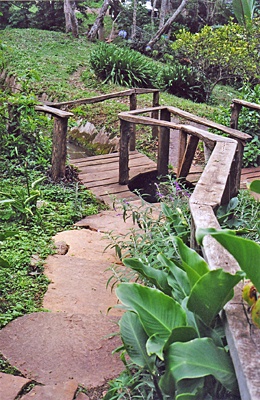All Nonfiction
- Bullying
- Books
- Academic
- Author Interviews
- Celebrity interviews
- College Articles
- College Essays
- Educator of the Year
- Heroes
- Interviews
- Memoir
- Personal Experience
- Sports
- Travel & Culture
All Opinions
- Bullying
- Current Events / Politics
- Discrimination
- Drugs / Alcohol / Smoking
- Entertainment / Celebrities
- Environment
- Love / Relationships
- Movies / Music / TV
- Pop Culture / Trends
- School / College
- Social Issues / Civics
- Spirituality / Religion
- Sports / Hobbies
All Hot Topics
- Bullying
- Community Service
- Environment
- Health
- Letters to the Editor
- Pride & Prejudice
- What Matters
- Back
Summer Guide
- Program Links
- Program Reviews
- Back
College Guide
- College Links
- College Reviews
- College Essays
- College Articles
- Back
From Seeds to Trees
Change isn’t always apparent and easy to notice, but that doesn’t mean that it isn’t there. All changes start out small, like a seedling. But with enough care, patience, and effort, they will blossom into beautiful flowers or delicious fruits, ready for the world to admire them, just like your ideas. As Gandhi once said, “You must be the change you wish to see in the world,” or in our case the seed, the beginning, the change. One such change is that all schools should contain gardens because they benefit the environment, enhance our connection with nature, provide hands-on learning experiences for school subjects, and make the schools greener.
School gardens benefit the environment. If a school garden is successful, then the school can use the produce from the garden instead of wasting money and buying vast amounts from stores. Not only does this ensure that students will get healthy and organic food, it also decreases the amount of harmful gas emissions that are released into the air (trucks commuting between schools every day). School gardens also increase the connection between students and nature, and can be very therapeutic. Studies like the Inter-generational Gardening Project conducted in 2007 and another study in Texas have proven that gardens can increase the positive environmental attitudes in students. Richard Louv’s 2005 book Last Child in the Woods: Saving our children from nature deficit disorder explores the benefits of a closer connection with nature. If we don’t reverse our disconnection with nature, we might soon face health problems such as growth and development deficiency.
It has also been proven that gardening can improve performance in math, science, writing, social studies, and the overall attitudes toward learning. School gardens can act as classrooms, providing students with hands-on learning experiences. Students who are full of energy and cannot sit still in a closed classroom have a chance at using their bottled up energy to do something helpful and learn at the same time. Studies have shown that gardens also improve standardized test scores, and the understanding of a certain subject. Right now, America is in a situation where math and science are our weakest subjects, what better way to improve our math and science skills than in a garden. Gardens are magical places that transform based on what the situation calls for. They can be laboratories, an inspirational place for writing, a watershed, a mini environment, a math equation, the subject of a graph, or simply a place to connect with nature, and let the imagination run wild.
The prime benefit of school gardens is that they make our schools greener and decrease the school’s carbon footprint. For example, instead of throwing away uneaten fruits and vegetables, schools with gardens can use these wastes as compost. This will reduce the amount of trash being sent to the landfills, and will also make the garden more nutritious. In order to help the fruits and vegetables decompose, schools can use earthworms instead of harmful fertilizers. Also gardens that grow edible produce help cut back on gas, electricity and other such things due to the lack of transporting frozen goods. Gardens can also boost a schools money income. If a school’s garden contains herb, spice, flower, fruit or vegetable plants, then they can be used for fundraising purposes. Not only is the school making money, but it is doing it in a way that bonds everyone that is involved together.
“Vision without action is merely a dream. Action without vision just passes the time. Vision with action can change the world.” Our nation is already changing the world for the better. For example, many schools like the ones in California are all required to have a school garden. That is because they are finally realizing the benefits that come with school gardens. Not only do they help the environment, they also contribute to hands-on learning, make schools environmental friendly, and strengthen the connection between students and nature. Gardens are the perfect solutions with no side effects to the problems faced by our nation, and the world. The time to act has been postponed for far too long, now is the time to act on our visions. Now is the time to change our world.

Similar Articles
JOIN THE DISCUSSION
This article has 0 comments.
